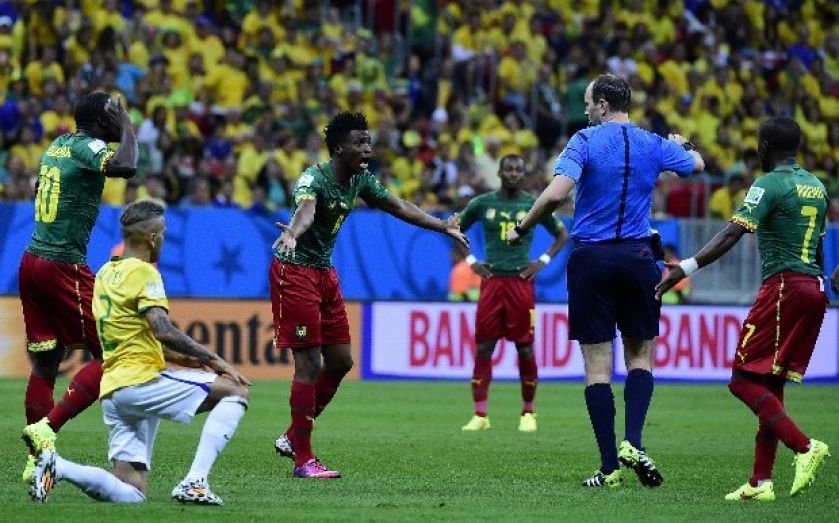Cameroon to investigate World Cup match-fixing allegations

Cameroon's football federation is investigating claims that seven of its players were involved in match-fixing at the World Cup.
German news magazine Der Spiegel carried allegations made by a convicted Singapore match-fixer Wilson Raj Perumal, who is reported to have sent a message prior to the match against Croatia correctly forecasting the 4-0 scoreline and saying that a player would be sent off.
An announcement by Fecafoot, the country's national football federation, appeared to implicate seven Cameroon players in the investigation.
"Recent allegations of fraud around Cameroon's three 2014 World Cup games, especially Cameroon v Croatia, as well as the existence of 'seven bad apples' do not reflect the values and principles promoted by our administration," read a statement from the organisation.
Despite not receiving any contact from Fifa on this issue yet, Fecafoot has said it will investigate the claims and that it was "strongly committed to employ all means necessary to resolve this disruptive matter with the shortest delay", the federation's interim president, Joseph Owona, said.
Cameroon finished bottom of Group A with three defeats, including the thrashing at the hands of Croatia when they had to play the majority of the game with 10 men after Barcelona midfielder Alex Song saw red for lashing out in the first half.
This is the latest high profile scandal involving an African national side at this World Cup. Cameroon's players had refused to board the aircraft to Brazil ahead of the tournament until an ongoing dispute over bonus payments had been settled, delaying the squad's departure by a day, while Ghana had two players sent home for indiscipline.
Ghana were embroiled in a match-fixing scandal of their own in the days leading up to the competition, with the West African nation's football association having to respond to an investigation by the Daily Telegraph that the officials in the organisation had agreed to fix international matches in the future.
Ghana and Nigeria both needed the involvement of their respective national governments to ensure that the players received their tournament fees.